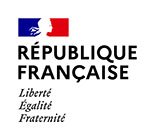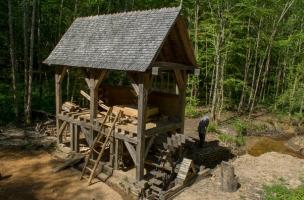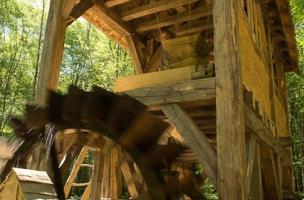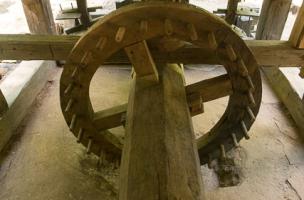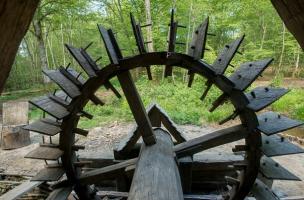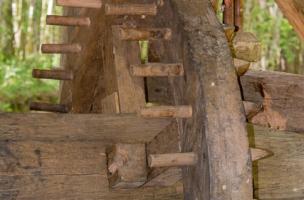You are here
A mill for Guédelon: experimental archaeology
Over the last two years, Inrap archaeologists and the team from the medieval building site of Guédelon have been collaborating on an astonishing experimental archaeology project: the construction of a 12th century mill using the techniques of the period. It is based on the remains of two water mills discovered in 2008 in Thervay (Jura), one from the Carolingian period, the other dated to between the mid 11th and late 12th centuries. This discovery made a significant contribution to our knowledge of water-powered milling in the medieval period.
The experimental archaeology project carried out by Guédelon and Inrap will enable us to further expand our understanding of the period's construction techniques: the encounter between theory, hypotheses derived from excavations and the reality of construction will allow us greater insight into the skills of medieval artisans. This scientific collaboration is being run as an educational project, with Guédelon being open to the public, particularly for the National Archaeology Days (6-8 June 2014).
The origins of the project: the mills of Thervay
30 kilometres from Besançon, the site of the mills of Thervay was excavated by Inrap during the construction of the LGV Rhin-Rhône railway line by Réseau ferré de France. This discovery and the issues it raises are important, as the archaeology of medieval water mills is still a largely unknown area. The excavations revealed two installations that succeeded each other but were not continuous, between the Carolingian period and the late 12th century AD. These wooden mills were preserved by the humid context in which they were discovered. In total, 189 parts belonging to the mechanism or the wooden structure of the second mill were revealed. The characteristics of the mills indicated significant developments in techniques and milling capacities between the Carolingian period and the 11th-12th centuries.
Reconstructing a mill
The challenge of the collaboration between archaeologists and builders was to construct a productive, full-scale mill inspired by the discoveries at Thervay. The mill, which will produce flour for the château's bread ovens, has been constructed over a stream. The stream is entirely canalised by wooden structures. The mill is 5 m long, 2.5 m wide and 5.6 m high, and has a paddle wheel of 2.4 m in diameter that powers a grindstone of almost 1 m in diameter and which weighs around 250 kg. The mill was commissioned in the spring, and inaugurated and opened to visitors on 21 May.
The medieval building site of Guédelon
The aim of the Guédelon project is to build a fortified castle using the techniques and materials employed in the Middle Ages. The people involved in the project represent a large number of medieval professions, such as quarrymen, stone carvers, masons, woodcutters, carpenters, blacksmiths, tilers, carters, basket makers and rope makers. Before the eyes of thousands of visitors, they work every day on the construction of a real fortified castle in a natural space that provides all of the raw materials necessary – stone, wood, earth, sand and clay.
This building project began in 1997 and is intended to run for 25 years. The main interest in such an adventure is in the observation of the different stages of the work. Each stage in the construction is unique and constitutes an event in itself. Whatever the interest of the spectator, Guédelon can provide something for all 21st century visitors. Guédelon is a site of scientific, historical, educational, tourist and human interest.
mahaut.tyrrell [at] inrap.fr
stephanie.hollocou [at] inrap.fr
delphine.bourselot [at] guedelon.fr ( )

